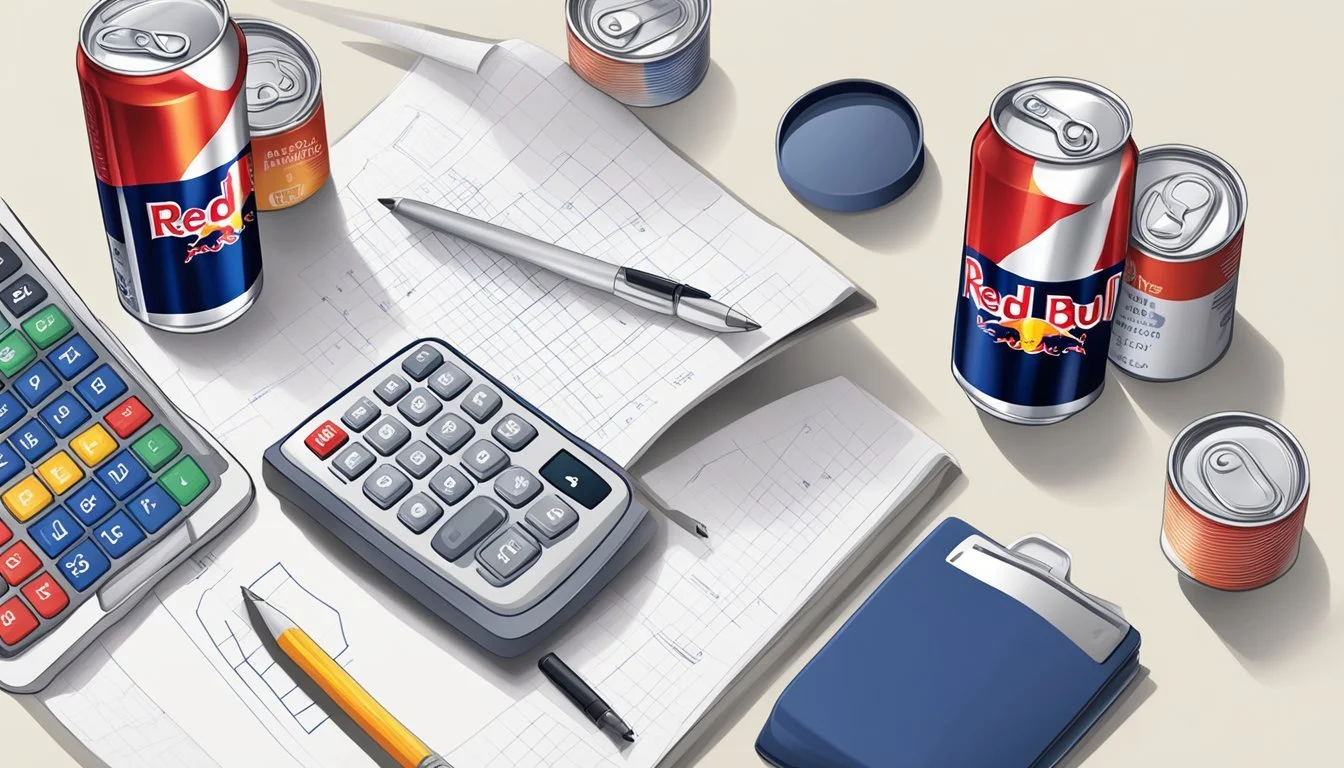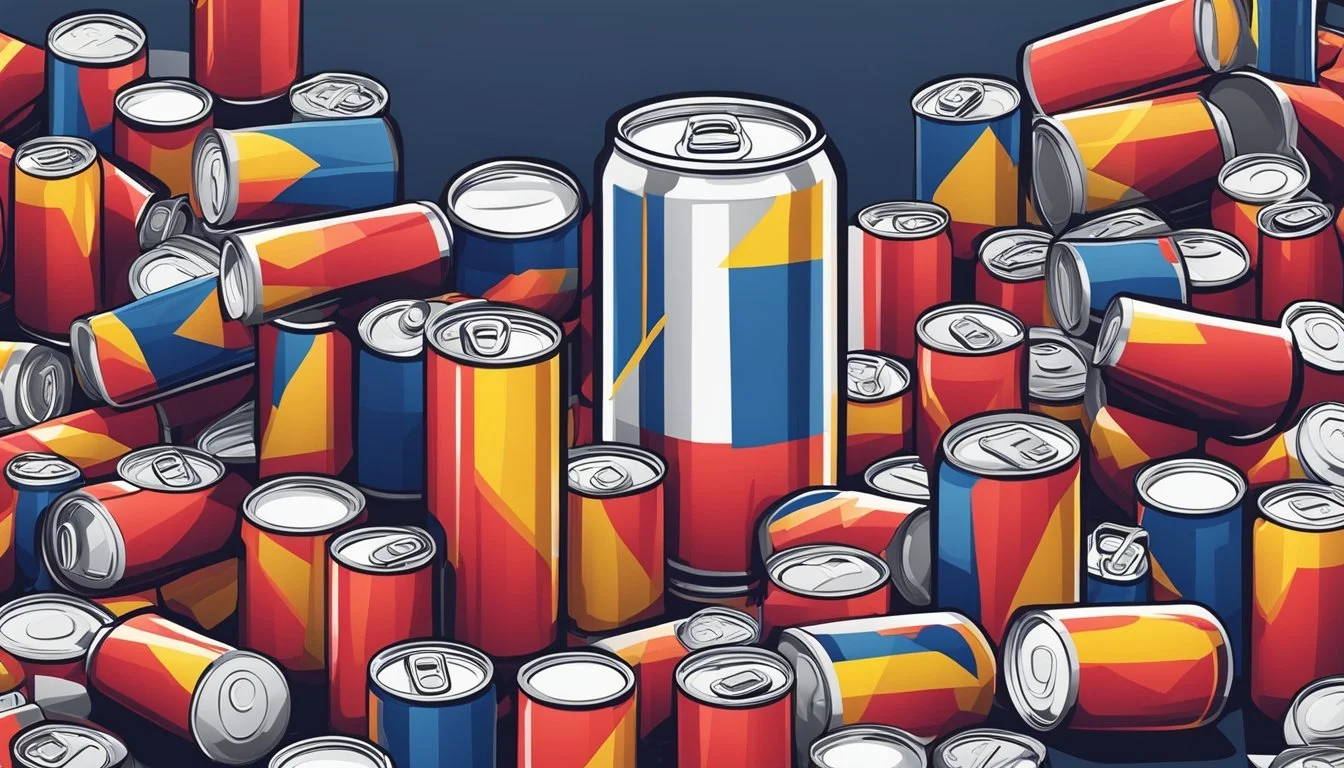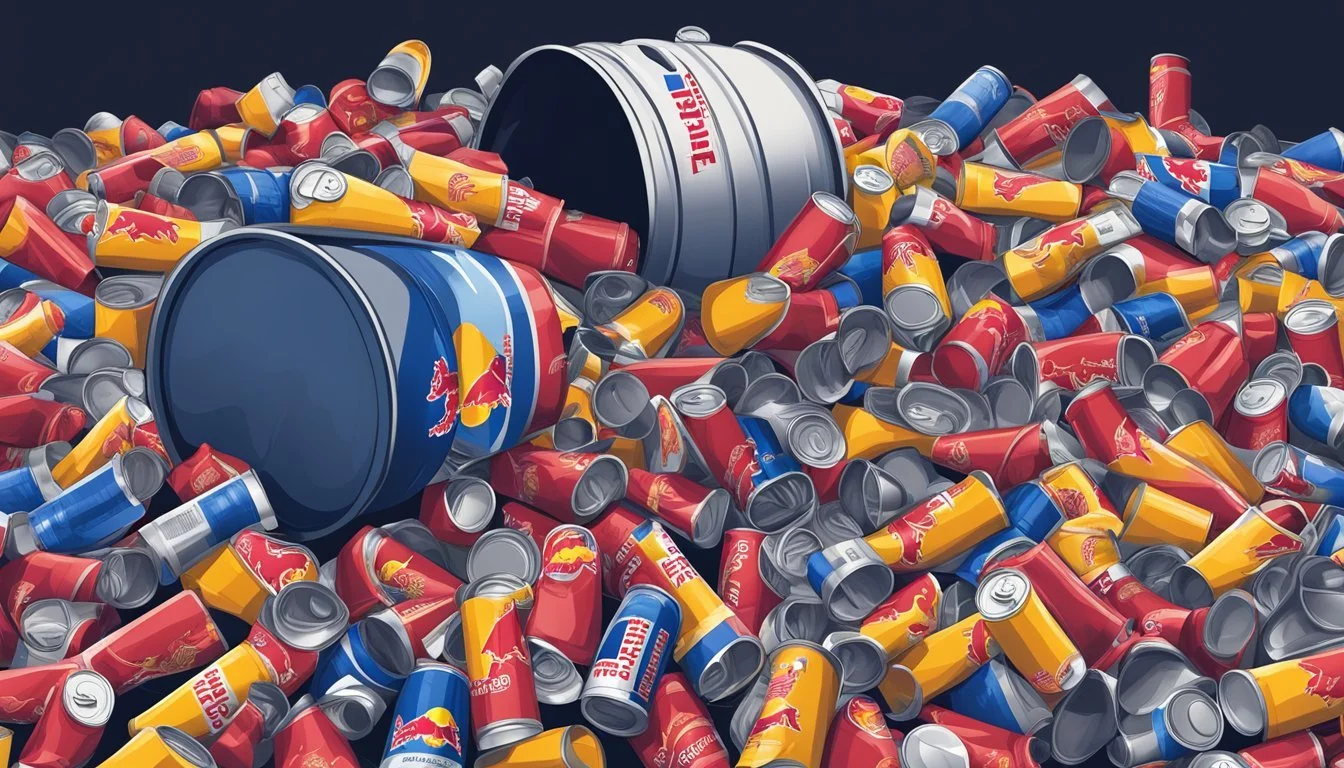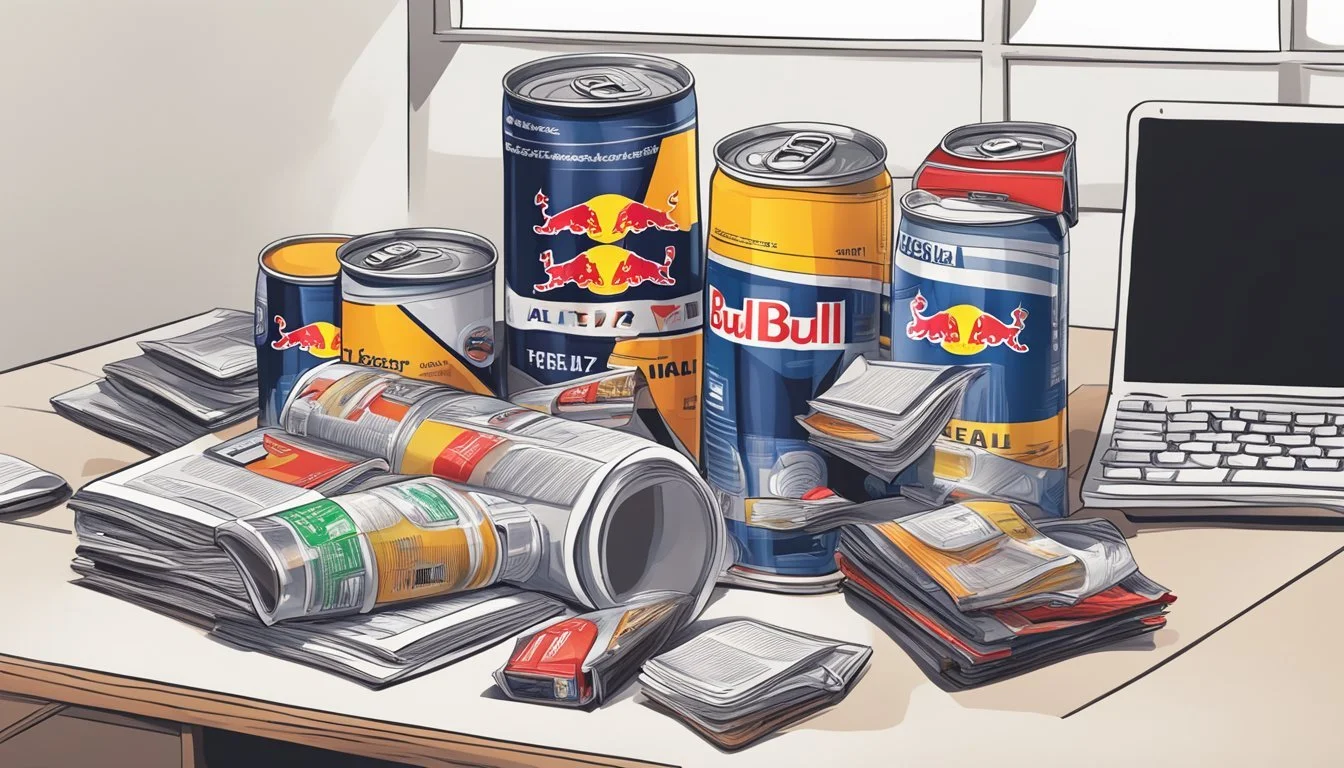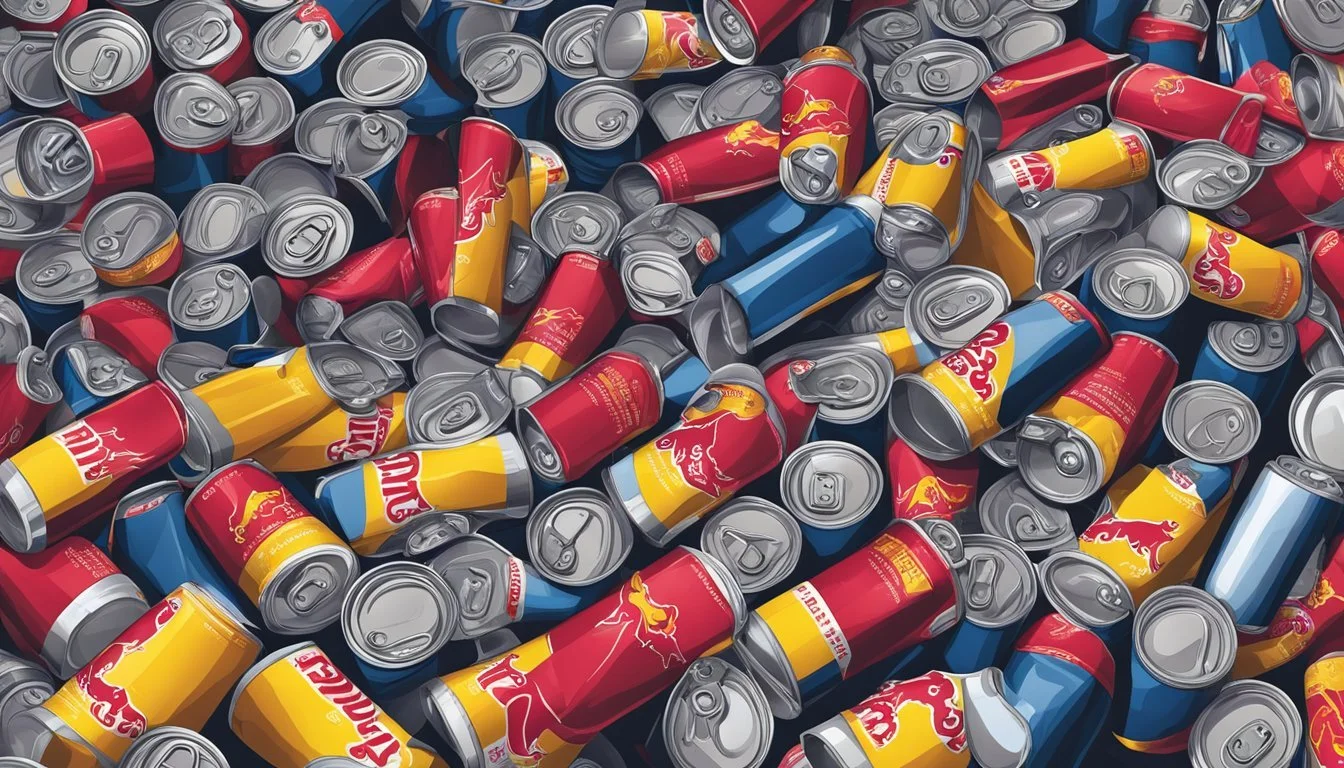How Many Cans of Red Bull Per Day Is Excessive?
Understanding Safe Consumption Limits
Understanding the safe consumption levels of Red Bull energy drinks is crucial for maintaining good health. Red Bull, a popular energy drink, contains caffeine and sugar, which are primary ingredients used to boost energy levels. A standard 8.4 fl. oz can of Red Bull contains 80 mg of caffeine and 27 g of sugar, which can provide a quick energy surge. However, considering the potential health impacts of excessive caffeine and sugar intake is important when determining how many cans of Red Bull one should consume in a day.
Health organizations suggest that an average adult should limit their caffeine intake to no more than 400 mg per day. This means that, under ideal circumstances, up to five cans of Red Bull could fall within this limit. Nevertheless, it is essential to take into account individual health factors and to remember that energy drinks should not replace sleep or be considered a regular energy solution.
Consuming energy drinks like Red Bull also introduces significant amounts of sugar, contributing to the daily caloric intake and potentially leading to longer-term health issues if consumed excessively. While a moderate consumption of one can per day is generally considered safe for most healthy individuals, it's recommended to be mindful of the overall dietary intake of caffeine and sugar from all sources, and not just from energy drinks. Keeping this in mind helps to avoid negative health effects associated with overconsumption.
Caffeine Content in Red Bull
When discussing the caffeine content in Red Bull Energy Drink, it's essential to understand the specific levels present and how they compare to a standard cup of coffee, as these factors are crucial in determining how much Red Bull one can safely consume.
Understanding Caffeine Levels
A typical 8.4 fl oz (250 ml) can of Red Bull contains 80 mg of caffeine. This amount increases in larger cans, with a 12 fl oz (355 ml) can containing 114 mg of caffeine. The Food and Drug Administration (FDA) advises that a daily intake of up to 400 mg of caffeine is generally safe for most adults, which equates to about five 8.4 fl oz cans of Red Bull. However, it's vital to consider all sources of caffeine consumed throughout the day to avoid potential for caffeine overdose.
Comparison to Coffee
Coffee (8 oz): approximately 95 mg of caffeine
Red Bull (8.4 oz): 80 mg of caffeine
The caffeine content of a single 8.4 fl oz can of Red Bull is slightly less than that of an 8 oz cup of coffee. However, considering the caffeine limits suggested by the FDA, one should monitor their total daily intake of caffeine from all beverages and foods to maintain a safe consumption level.
Ingredients Analysis of Red Bull
Red Bull's formulation includes a combination of ingredients that are aimed at providing the consumer with increased energy and alertness. This section breaks down the key components of Red Bull, from its nutritional content to the specific role of vital ingredients like taurine and vitamins.
Key Nutritional Information
One 8.4 fl oz can of Red Bull contains:
Calories: 110
Total Fat: 0g
Sodium: 105 mg
Total Carbohydrates: 28g
Sugars: 27g
Protein: Less than 1g
It also includes 80 mg of caffeine which is about as much as a cup of coffee.
Sugar and Artificial Sweeteners
Red Bull contains 27 grams of sugars in a standard 8.4 fl oz can, which consist mainly of sucrose and glucose. These sugars contribute to the total amount of calories in the drink. The sugar content is similar to that found in some natural fruit juices, but it's important to monitor intake due to the potential for added sugars to contribute to excessive calorie consumption.
Taurine and Other Vitamins
Taurine, an amino acid, is one of the main ingredients touted for its supposed energy-boosting properties. A single can of Red Bull contains about 1000 mg of taurine. Additionally, the drink is fortified with several B-group vitamins, including niacinamide (vitamin B3), pantothenic acid (vitamin B5), among others which are involved in energy metabolism. Other ingredients include sodium bicarbonate, citric acid, and additives that contribute to the carbonation and flavor profile.
Health Implications
Drinking Red Bull can lead to a variety of health implications that consumers need to be aware of. Key considerations include its potential short-term effects, impacts on heart health, and possible risk factors associated with excess consumption.
Short-Term Effects on the Body
Consuming energy drinks like Red Bull can lead to immediate physiological changes. Caffeine intake can cause a temporary increase in alertness and heart rate. However, symptoms of caffeine overdose might occur, such as jitteriness, insomnia, and palpitations, especially when consumption exceeds the recommended limits.
Impact on Blood Pressure and Heart Health
Research indicates that energy drinks can significantly increase blood pressure. High levels of caffeine and sugar can strain the cardiovascular system, leading to elevated blood pressure. The American Heart Association suggests that frequent consumption of caffeinated beverages might be linked to heart rhythm disturbances and other heart health issues.
Potential Risk Factors
Beyond immediate effects, there are several health risks from drinking energy drinks like Red Bull regularly:
Type 2 diabetes: The high sugar level in energy drinks can contribute to an increased risk of obesity and diabetes.
Obesity: Added sugar and calories from regular and excessive consumption could lead to weight gain and obesity.
Caffeine tolerance: Over time, individuals may develop a tolerance to caffeine, potentially leading to increased consumption and exacerbated health risks.
Dehydration: Caffeinated beverages, which include energy drinks, can result in mild dehydration.
Liver health: There is a potential for liver damage with the chronic consumption of high-sugar, high-caffeine beverages.
Safe Consumption Guidelines
When considering the safe consumption of Red Bull energy drinks, individuals should be mindful of the recommended daily limits and the specific considerations for different groups to maintain health and safety.
Recommended Daily Limits
The maximum recommended caffeine intake for the average healthy adult is 400 mg per day, which equates to about five 8.4 fl oz cans of Red Bull, each containing 80 mg of caffeine. However, it's important to note that one can per day is typically considered sufficient to avoid the excessive intake of caffeine and added sugar. The American Heart Association suggests a limit of no more than 36 grams of added sugar for men and 25 grams for women per day, which should be factored into the total daily intake when consuming Red Bull.
Special Considerations for Different Groups
Pregnant individuals are advised to limit their daily caffeine intake to less than 200 mg per day, which is about two and a half 8.4 fl oz cans of Red Bull. Those with a lower body weight or individuals with existing health conditions, such as high blood pressure, may need to adjust their intake accordingly. A balanced and healthy lifestyle should also consider alternatives to energy drinks and ensure occasional consumption rather than regular or significant reliance. People with heightened caffeine tolerance should still practice moderation to avoid the potential risks associated with high caffeine content.
Negative Side Effects and Overconsumption
Consuming Red Bull energy drinks above the recommended levels can pose significant health risks, from mild discomfort to severe medical conditions due to caffeine overdose and high sugar content.
Recognizing Symptoms of Excess
Excessive consumption of Red Bull can lead to caffeine overdose, which impacts the nervous system and may result in symptoms ranging from jitteriness and anxiety to more serious conditions such as seizures. Recognizable signs of too much intake include:
Increased blood pressure
Heart palpitations
Mental focus changes, such as difficulty concentrating or confusion
Discomfort, characterized by feelings of restlessness or dizziness
A "crash" in energy levels after the initial boost
It's important to note that symptoms can vary with each individual's sensitivity to caffeine and sugar.
Dealing with Withdrawal and Addiction
Red Bull and similar energy drinks can be addictive due to their high caffeine and sugar content, which can stimulate the brain similarly to other addictive substances. When trying to reduce consumption, individuals might experience:
Withdrawal symptoms, including headaches, fatigue, and irritability
Difficulty in managing dependence on energy drinks for mental performance or routine tasks
Potential for mental discomfort, as the body adjusts to lower levels of stimulants
To cope with addiction and withdrawal, gradual reduction and seeking professional health advice are typically recommended strategies.
Exploring Healthier Alternatives
When considering energy drinks like Red Bull, it's crucial to understand that safer and healthier substitutes exist. These alternatives can provide energy without excessive caffeine intake or high levels of sugar, aligning more with a balanced and healthy lifestyle.
Sugar-Free and Low-Caffeine Options
Choosing sugar-free or low-caffeine alternatives can be beneficial for maintaining energy levels without a significant increase in sugar intake or calorie consumption. Notably, a shift towards these options often correlates with:
Reduced sugar content: Important for controlling blood sugar spikes and crashes.
Lower caffeine levels: Helps minimize the risk of caffeine-related side effects such as palpitations or high blood pressure.
Some recommended products known to offer these characteristics include:
Caffeine-reduced coffee
Sugar-free versions of popular caffeinated beverages, including energy drinks
Herbal teas with naturally occurring lower levels of caffeine
Natural Energy Boosts
Exploring natural energy boosts involves incorporating main ingredients that are sourced from nature without artificial tones, flavors, or added sugars. These can provide a more sustained form of energy suitable for a healthier lifestyle. Common natural ingredients and their benefits include:
Hemp seed oil: Found in products like Canna Hemp Energy Drink, hemp seed oil can offer a natural boost.
Organic caffeine sources: Green tea or yerba mate are examples of beverages that contain naturally occurring caffeine.
To ensure these alternatives support a healthy lifestyle, moderation is key, just as it is with traditional caffeinated beverages such as Red Bulls and Monster. It is always recommended to check labels for the complete list of ingredients to ensure they align with individual health goals and dietary needs.
The Way Forward for Energy Drink Consumption
The rise in energy drink consumption warrants an examination of how to integrate these beverages into a balanced lifestyle and adhere to industry regulations for safety.
Developing a Balanced Lifestyle
To ensure that energy drinks do not compromise one's health, they should be consumed in moderation as part of a balanced and healthy lifestyle. It is recommended that individuals lead an active lifestyle, where energy drinks serve only as an occasional boost to mental focus and energy, rather than a daily necessity. Here is a list of key points for maintaining balance:
Occasional Consumption: Treat energy drinks as an occasional supplement rather than a regular part of the diet.
Healthy Alternatives: Prefer natural sources of energy such as a nutrient-rich diet and ample sleep.
Monitor Intake: Be vigilant about the caffeine content in energy drinks, as high levels can lead to health risks especially when combined with other caffeinated beverages.
Regulation and Industry Standards
The FDA and American Heart Association recommend that the daily intake of caffeine should not exceed 400 mg for an average healthy adult, which is roughly the amount in four 8-ounce cups of coffee. Energy drinks, including popular brands like Red Bull, typically contain high levels of caffeine and sugar. For context:
Drink Size Caffeine Content 8.4 fl. oz. 80 mg 16 fl. oz. 160 mg
To promote safety, it is vital for the energy drink industry to follow stringent regulation and industry standards. This could include detailed analysis and clear labeling of nutritional information to ensure consumers are properly informed. Healthline offers an analysis that supports the importance of transparency in nutrition labels to help guide consumers in their choices. Such efforts by the industry will aid in the prevention of any potential harm caused by excessive consumption of energy drinks.



